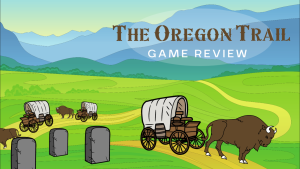What if a student were to come face-to-face with a gunman?
What if a tornado set its sights on the university?
What if the campus began shaking traumatically?
The above scenarios are ones Associate Professor of Geology James Durbin and Public Safety Assistant Director Stephen Bequette think students and faculty should be asking themselves.
Over the next three weeks, The Shield will take a look at potential disasters and how the university plans to react.
By the end of the year, 28 school shootings occurred in the United States – eight of which occurred on college campuses.
From reports of gunmen at Ball State, Vincennes and IUPUI, to a stabbing incident at IU, it was an active year for Indiana, too.
One in four college campuses are not prepared for an active shooter situation, according to a recent survey by Campus Safety Magazine.
While USI left 2013 disaster-free, it also left a lot of people asking, “Are we prepared?”
Some faculty members aren’t so sure.
Durbin said if a gunman were to walk into his classroom, he wouldn’t know what to do.
“There are steps in the right direction for preparation, but they’re window-dressing,” Durbin said. “They’re meant to make us feel good, but there’s not a lot of practical, demonstrable, usable information.”
Bequette said concerned faculty members should come forward and let the Office of Public Safety know.
He and Public Safety Director Stephen Woodall collaborated on a “Shots Fired” presentation, which was shown to 20 individuals, administrators and organizations, including the Children’s Center, College of Nursing and Health Professions Dean Ann White, the Provost’s Council and the President’s Office, in 2013.
Bequette said it provides individuals with preinvent knowledge.
“Maybe they didn’t get the message. Maybe they didn’t attend one of these sessions. If they don’t really feel safe or prepared, why is that?” Bequette said. “Take a little responsibility. We’re here to help educate and to assist in public safety issues on campus anytime someone requests us to step in. They do have to take a certain amount of responsibility for their own safety, though.”
According to the Campus Care Guide, individuals should report any suspicious behavior to the Office of Public Safety or the Dean of Students Office.
Another concern for faculty members is the locks on classroom doors, which are exterior rather than interior. A faculty member would have to step into the hallway with a key in order to secure the room.
“The cost to put new locks on every door so that you could lock yourself in is extremely expensive,” Bequette said. “Basically, you’d be modifying something that’s already there.”
There was an incident several years ago in one of Durbin’s classes – a student had a grand mal seizure during an exam.
“Everybody and myself thought it might be a heart attack,” Durbin said. “I didn’t have a cell phone with me, so I ran out to the nearest office to make a phone call. But what if that’d been a gunman instead of a seizure? What if it had been a heart attack? I wasted 40 seconds running over to the office to call security.”
He said every classroom should come equipped with an emergency phone.
Junior communication studies major Jesse Marx learned a lot about the university’s plan during a crisis communications class he took in the fall. In groups of three, students were asked to develop a crisis plan should an active-shooter situation occur on USI’s campus. They were asked to reach out to university officials to gather information they needed for the project, and Bequette was more than willing to help out, Marx said.
“He came to our class for the presentations to see if there was any knowledge or ideas he could gain from us to help with the university’s plan,” Marx said.
Bequette spoke to the entire class initially and communicated with Marx’s group via email as they worked on their project.
“Within hours of sending our questions or requests for information, he would respond with exactly what we needed,” he said.
Marx said he was surprised by what he discovered.
“Our public safety department is headed by some very forward-thinking individuals,” he said. “They shared some very neat and interesting ideas that are actually being worked on now to increase the ability to get the message out to the population on campus of an emergency taking place.”
Marx feels USI is one of the universities in the U.S. that is ahead of the game, he said.
“Like any organization, there is always room for improvement no matter what,” he said. “No one is going to feel safe, no matter what, if the incident were to really happen. It is comforting to know that USI’s public safety department is very forward thinking in their plans, prevention and monitoring for any hints of a possible crisis. But I would not feel safe if a gunman was said to be outside of a vault I was in.”
Bequette said the university is generally safe because of its location in proximity to the city, and because he and Woodall are both retired Vanderburgh County Sheriff deputies.
“We have an excellent liaison with the sheriff’s office that’s carried over since our retirement,” Bequette said.
The university employs sheriff’s deputies to patrol Thursday through Saturday to supplement the work of public safety officers.
“Things just seem to click and work out,” Bequette said. “Many of the sheriff’s deputies graduated from here. They’re stakeholders here. So they do their best to keep it safe.”
Public safety officers are not sworn in. Therefore, they are unarmed.
The Board of Trustees does not support an armed force on campus, Bequette said.
“The only thing our officers carry on them is their handcuffs,” he said. “They’re really not a weapon – they’re more of a protection tool.”
In his five years with the university, he said he knows of three instances when handcuffs were used.
“Our officers really don’t put their hands on anybody unless they need to protect themselves, the person they’re dealing with or someone else,” he said.
Public safety officers undergo “refresher training” every summer for the use of handcuffs and self-defense. They also take verbal judo classes.
“Their best weapon is their mouth,” Bequette said. “If it gets to a point where it looks bad, they know to step back and call for assistance from the sheriff’s office. They do a good job with the conditions that they’re given, you know, no weapons – it’s just them. If a gunman were to come on this campus, our officers would work to their ability – eyes, ears, intelligence, information gathering. We would already have the sheriff’s office and outside resources responding.”
He said local law enforcement personnel have trained with public safety officers, so they’re well acquainted.
“You’re going to have law enforcement officers responding here in all manners of dress,” Bequette said. “They’re going to get here as quick as they can with a large variety of weapons.”
He is confident the sheriff’s deputies know their way around campus because all new hires are required to spend half a shift learning the lay of the land.
In a crisis situation, public safety officers would be responsible for assisting law enforcement personnel and giving them directions.
“They would be a great support role,” Bequette said. “But they’d be in a pickle if they came face-to-face with it and didn’t have weapons.”
UP NEXT: Take a look at how the university plans to handle potential natural disasters in next week’s issue of The Shield.






